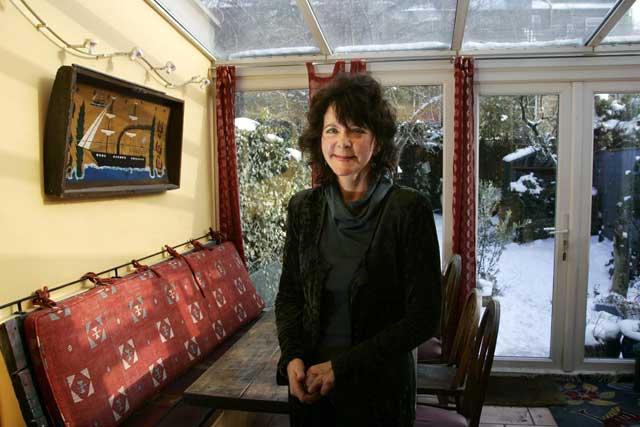Where the Serpent Lives, By Ruth Padel

Your support helps us to tell the story
From reproductive rights to climate change to Big Tech, The Independent is on the ground when the story is developing. Whether it's investigating the financials of Elon Musk's pro-Trump PAC or producing our latest documentary, 'The A Word', which shines a light on the American women fighting for reproductive rights, we know how important it is to parse out the facts from the messaging.
At such a critical moment in US history, we need reporters on the ground. Your donation allows us to keep sending journalists to speak to both sides of the story.
The Independent is trusted by Americans across the entire political spectrum. And unlike many other quality news outlets, we choose not to lock Americans out of our reporting and analysis with paywalls. We believe quality journalism should be available to everyone, paid for by those who can afford it.
Your support makes all the difference.Having worked in many fields - poetry, non-fiction, broadcasting, conservation, the Darwin industry - Ruth Padel has now attempted a novel. Where the Serpent Lives is an ambitious work: set in London and India, it blends Padel's well-known interest in animals with the travails of 21st-century Londoners. At the centre is Rosamund, her wealthy and philandering husband Tyler, their incommunicative son Russel (named after naturalist Alfred Russel Wallace, who almost scooped Padel's great-great grandfather Charles Darwin) and his dog Bono.
The other characters are all connected with Rosamund – her father Tobias Kellar, a snake-scientist domiciled in distant Chennai, with whom she hasn't spoken in years; another snake expert, Richard, who was once in love with her but is now married to her friend Irena; and Scott, a policeman specialising in wildlife crime who befriends Russel and creeps into Rosamund's heart. There are also snakes, lots of them, gliding along dark Indian forests and occasionally lashing out with interesting consequences.
The story is essentially about Rosamund's paralysis of will: she can't leave Tyler despite his infidelities, she can't communicate with Russel, she can't bear to think of her father, she can't jump into bed with Scott, she can't even use her training in garden design to make money and gain some self-respect. If Rosamund is an authentic example of postmodern British womanhood, then God help the Brits. Although nice in an insipid kind of way, the woman is passivity incarnate, and Padel does not give us enough reason to forgive that passivity.
Except for her mother's mysterious death and the rumours she hears about it, nothing in her past or present justifies her inability to deal with life. It is only when life decides to deal with her that she seems to wake up, and even then, the change in her fortunes depends less on her own determination than on her connections with others, including Tyler's mistress. The other main characters are close to being stereotypes – Tyler is straight out of any red-top tabloid, Kellar the stiff-upper-lip, emotionally constipated Englishman, Richard sufficiently droopy to feature in the soppy Bollywood films of my childhood, perhaps in the company of Tyler's sultry but golden-hearted mistress. A sex scene that ends with the promise, "I'm going to make you the most beautiful rice and dal in the world" might just make it to the long list for the Literary Review's Bad Sex Prize. Padel is slightly better when she leaves the sex out of food. It was so pleasing to find a Westerner who has heard of topshe fish that I didn't mind when a Bengali character referred to them as tapashwi – correct but as unidiomatic as saying two-pence instead of tuppence.
The best things about Where the Serpent Lives are the evocative depictions of life in the fast-degrading forests of India. Padel has a real feel for nature and she does excellent snakes. But she is not just a nature-lover of the traditional kind. Greatly concerned about the illicit trade in animals, she paints an almost apocalyptic picture of the ways in which the world's wild animals are being endangered not only by the greed of criminals but also by the peasant's desperate search for sustenance in economies interested only in development. Although good with Indian snakes, Padel tends to be defeated by Indians. Except for the doctor Shanta, none is more than a sketch. The only character in India who really interests Padel is Rosamund's father, almost a colonial-style sahib, devoted to his snakes, attended by largely-silent staff and servants, displaying a passing interest in Hindu iconography, but showing absolutely no interest in associating with Indians of his own rank. He does undergo an emotional transformation, but as with her daughter's metamorphosis, it comes too late for us to like or understand him. In a way, Kellar is symbolic of the novel - terrific with animals, hopeless with humans.
Chandak Sengoopta teaches history at Birkbeck College, London
Join our commenting forum
Join thought-provoking conversations, follow other Independent readers and see their replies
Comments